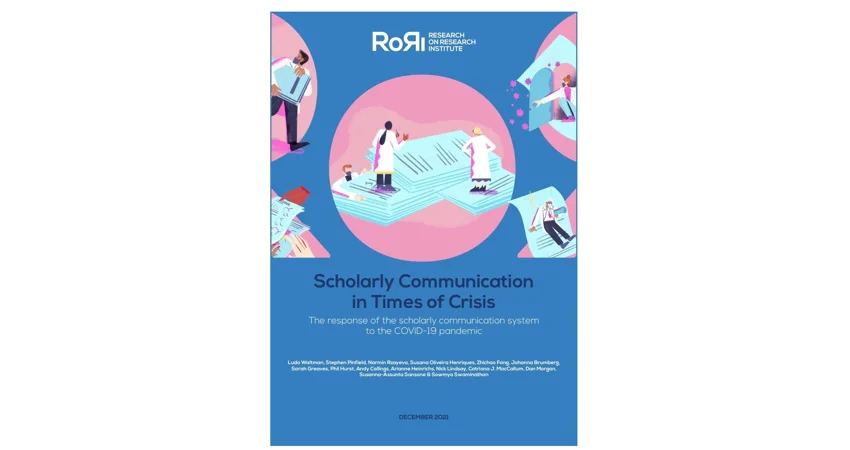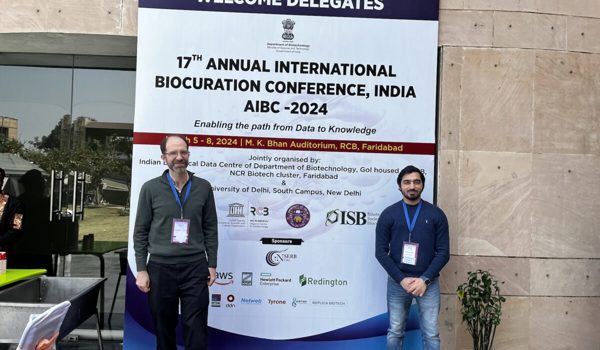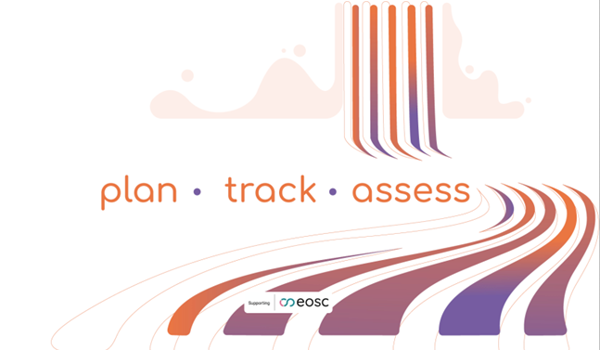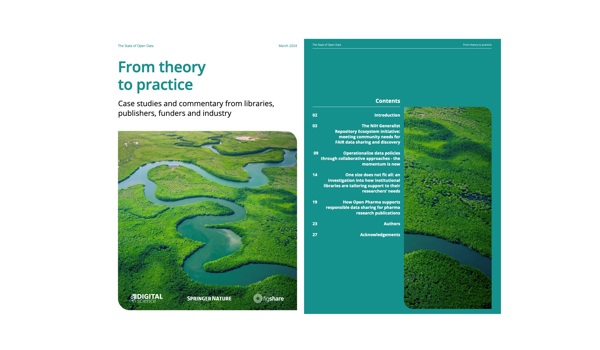06 Dec 2021
COVID-19 Rapid Review Initiative report shows COVID research is freely accessible, but data sharing and preprinting are low
The Centre-based FAIRsharing has contributed to strengthen data policies of the journals and publishers participating in the initiative, to make results of COVID-19 articles available for scrutiny and reproducibility.

The RORI Scholarly Communication in Times of Crisis report
This news follows up on our article from earlier in 2021: COVID-19 Rapid Review publishers agree to mandate data deposition
Last year, a Wellcome-coordinated COVID-19 statement signed by over 30 publishers called for open or free access to all COVID-19 publications for the duration of the pandemic; for COVID-19 papers to be made available via preprint servers prior to journal publication; and data from COVID-19 research to be shared as early as possible.
A second initiative, launched by a group of publishers and related organisations, the COVID-19 Rapid Review Initiative, worked on implementing the commitments made in the Wellcome-coordinated COVID-19 statement and aimed to accelerate peer review of COVID-19 papers. Oxford e-Research Centre contributed to the Initiative via FAIRsharing.org. Based in the Centre's Data Readiness group, FAIRsharing is a curated, informative and educational resource on data and metadata standards, inter-related to repositories and data policies. The data policies of the members of this initiative were grouped and made visible under a dedicated FAIRsharing Collection, which includes 14 policies that recommend a total of 137 data repositories and that refer to 27 (meta)data standards.
While the efforts of scientific publishers and the research community have sped up publication times for COVID-19 research, and made much of it freely accessible, more effort is needed if society is to truly benefit from open science, the Scholarly Communication in Times of Crisis: The response of the scholarly communication system to the COVID-19 pandemic report says. The report has been written by a team comprising researchers, publishers, and other scholarly communication experts, all associated with the COVID-19 Rapid Review Initiative, including Professor Susanna-Assunta Sansone, FAIR co-author and FAIRsharing founder.
The report presents the results of research undertaken by the team and reviews research conducted by others, with a view to identify opportunities for the scholarly communication stakeholders to effect change that will extend beyond the pandemic and have long-lasting benefits.
The sharing of the SARS-CoV-2 genome is seen as the poster child for open science, and the pandemic held up as a turning point for open science. Yet the report finds this has only partly been realised. Levels of COVID-19 research data sharing have remained low during the pandemic, and preprinting of research on the virus has been lesser than hoped.
The report makes a series of key recommendations, three of which focus on opening up data, encouraging preprinting and strengthening collaboration across the scholarly communication ecosystem. The report concludes that there is no magic bullet to improving scholarly communication. It is a joint responsibility that requires collaboration and coordinated action across stakeholders in the research system.





